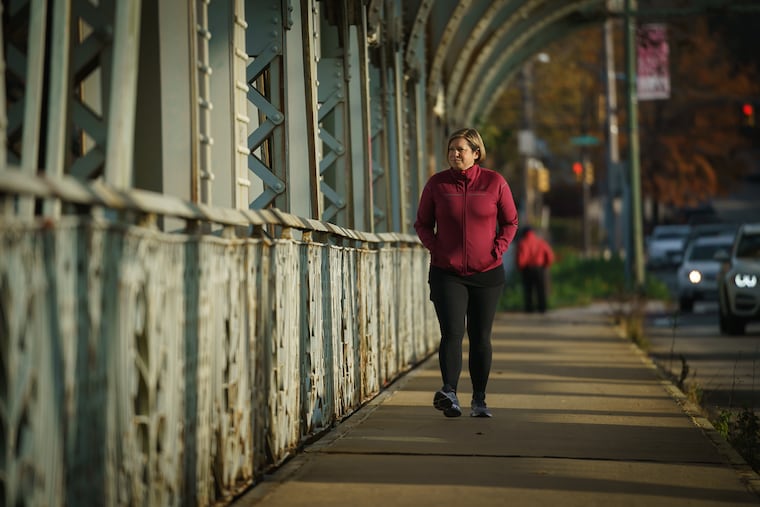Vaccination can prevent long COVID, and may even alleviate symptoms, studies find
A wide-ranging review of studies in Great Britain showed vaccines can play a role in reducing cases of long COVID.

Long-haul COVID-19, often shortened to long COVID, is less common among people who were vaccinated, a British review of multiple studies found, and vaccination may help reduce symptoms in previously unvaccinated people after they developed the syndrome.
The United Kingdom Health Security Agency’s recent review found two doses of the Pfizer, AstraZeneca, or Moderna vaccines, or a single dose of the Johnson & Johnson vaccine, halved people’s risk of developing long COVID symptoms compared to the unvaccinated or partially vaccinated.
» READ MORE: How a long COVID survivor learned to make peace with her new life.
The doses even benefited people who already had long COVID, the studies found, with some saying their symptoms improved after receiving vaccine doses.
What did the new long COVID review find?
The review released this week by the British health agency compiled the results of 15 British and international studies that looked at either the potential for vaccines to prevent long COVID or the doses’ effect on people who had long COVID.
People age 60 and older seemed to respond particularly well to vaccination, with vaccinated people in that age group with breakthrough cases being less likely to develop long COVID than younger vaccinated people. For vaccinated people who did develop long COVID, having received the vaccine seemed to reduce the length of time they experienced symptoms.
How often are patients with COVID helped by vaccines?
Vaccination could also lead to improvement for people who already had long COVID symptoms, though that wasn’t universally the case. One study in the review found that about 23% of people with long COVID reported their symptoms improved after they received vaccine doses, compared to about 15% of unvaccinated participants.
One study found that getting vaccinated quickly after a COVID-19 diagnosis made a difference, too. People vaccinated shortly after being diagnosed with the virus were “much less likely” to have long COVID symptoms than people who waited until after their infection to get doses.
How many people have long COVID?
A Penn State study last year reviewed data on unvaccinated adults and children infected with COVID-19 between December 2019 and March 2021, and found more than half experienced symptoms like weight loss, fatigue, fever, or pain for one to six months after their infections. One in four reported difficulties concentrating, and one in five found it harder to get around. The majority of people surveyed for the study experienced serious cases of COVID-19, with 79% needing hospitalization for their initial infection. Another 2021 study from PLOS Medicine found about a third of people who caught COVID-19 still experienced symptoms three to six months after infection.
What is long COVID?
People are considered to have long COVID if their symptoms from COVID-19 persist four weeks or more after their initial infection, according to the U.S. Centers for Disease Control and Prevention. The cause of long COVID isn’t clearly understood, and the severity and length of symptoms vary widely from person to person. Some people feel normal in a matter of weeks or a few months, while others have gone a year or longer without relief.
» READ MORE: Philadelphians isolated by long COVID find hope and connection through social media
What are the symptoms of long COVID?
Symptoms can include exhaustion, shortness of breath, rashes, headaches, and brain fog. For some, the condition is debilitating, forcing them to take extended medical leaves from jobs and leaving them uncertain if they’ll ever feel like themselves again.
People with the condition initially struggled to be taken seriously by health-care providers, and resources for them remain limited.